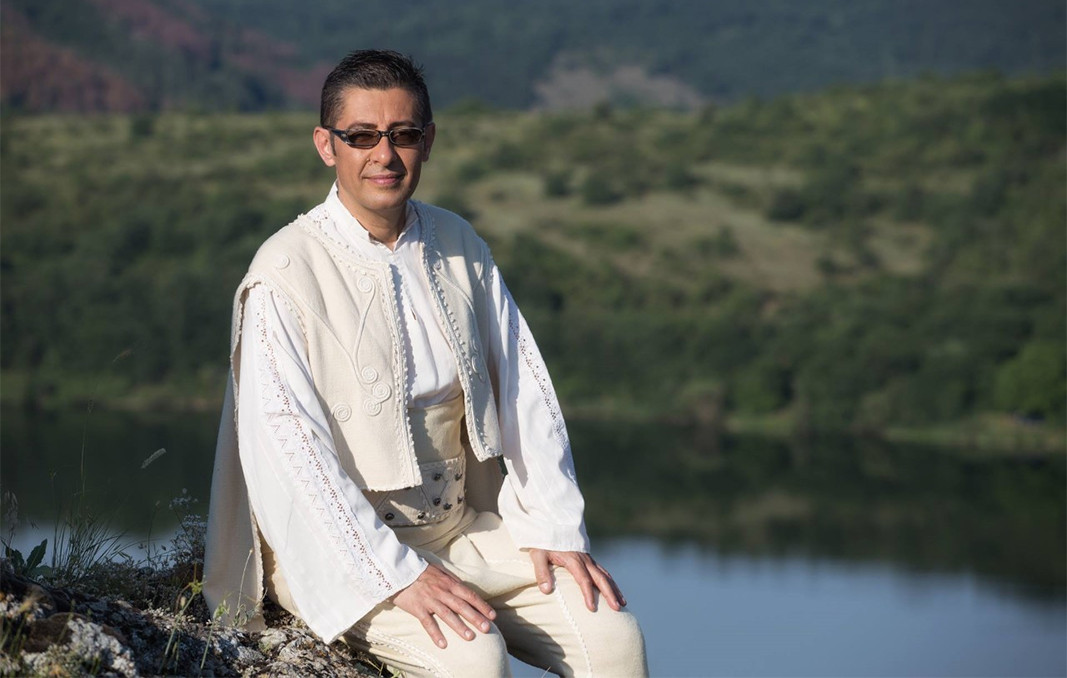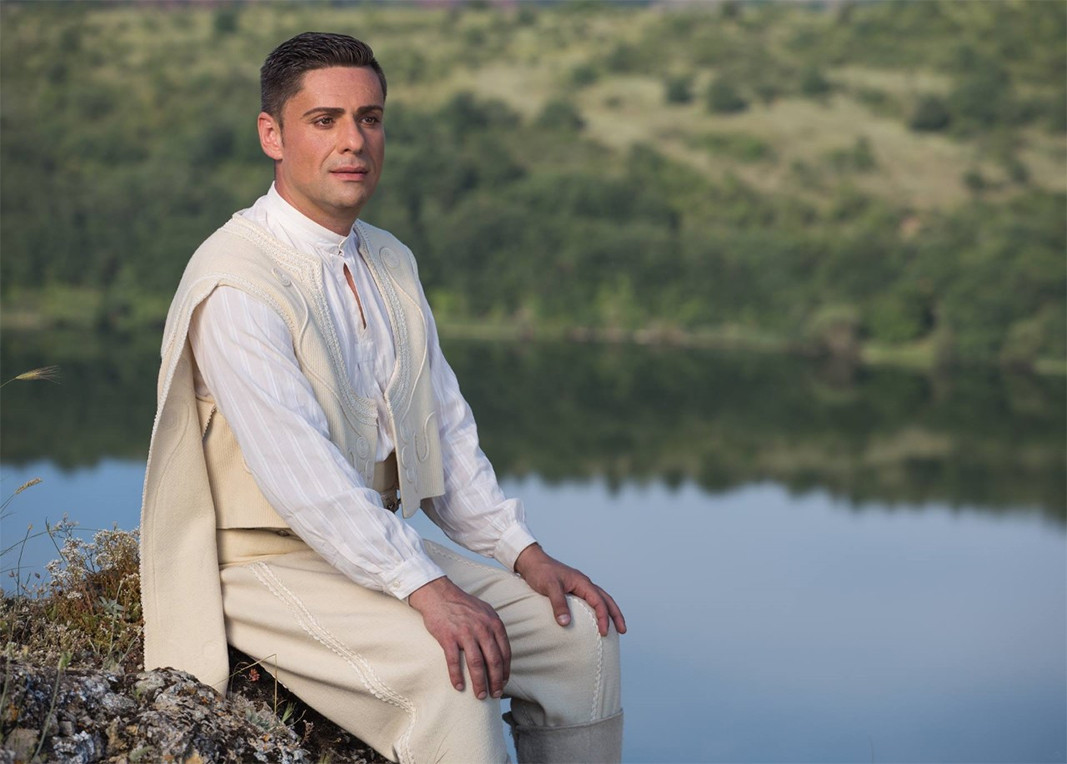It is hard to count the number of pages written about the life and work of the national hero of Bulgaria, Vasil Levski. In some of them we are also able to find interesting information about Levski – the singer. In the book "The Apostle of Freedom", English writer Mercia McDermott points out that singing was not only a pleasure in Vasil's life, but also a form of self-expression.
We most often focus on the historical heritage of Levski, his revolutionary activity and ideology and it seems that we pay less attention to the spiritual world of the Apostle of Freedom. "We have received quite a few testimonies about the kind of person he was outside of his revolutionary activities - when he was alone or with his friends," says Daniel Spasov, folk singer, folklorist, TV presenter and producer of the film "The Songs of Levski", realized by BNT in 2017 on the occasion of the 180th anniversary of the Apostle's birth.
"We have learned about the songs Levski liked from his personal notebook. For example, in it we found the lyrics of the song ‘Vse za tebe mislya, mamo’ (I am always thinking about you, mother) - one of the most sacred and intimate songs. It is a song-confession dedicated to his mother. It is believed that Levski himself is the author of the song. The notebook also contains Hristo Botev's poem ‘Na Proshtavane’, which was later given a melody. The lyrics of two church chants have also been preserved – ‘Dostoino est’ and ‘Troparion to Sts. Cyril and Methodius’. In addition, we have many accounts that Levski had a beautiful voice and that he had sung in front of poet Hristo Botev and in front of writer and educator Kiro Tuleshkov…"

The story of "Levski's last song" has already become legendary. The song was discovered and restored just six years ago. Daniel Spasov told us more about it:
"When we were making the film ‘The Songs of Levski’, my colleague Vesela Smilec was working on a documentary about the Apostle's family. Searching for various documents in the National Library, BNR and other places, she came across Raina Kostentseva's book ‘My Hometown Sofia’, which describes an extremely interesting case, retold by the folklorist Raina Katsarova, who also made many interesting sound recordings. During her research work she met an elderly woman called Petkana Hashova from the village of Lozen, near Sofia, who told her an extremely interesting and unusual story about being present at Levski's hanging. She worked as a servant for an Ottoman Bey in Sofia, who came home one evening and told her that the next day ‘an enemy of the empire’ would be hanged. That is how the Ottomans referred to Levski. He told her that she should take his two children to the hanging. Petkana told Raina Katsarova that she had been there and that after Levski’s confession to the Bulgarian priest, the Apostle sung a beautiful old song in Turkish:
Don't sing, don't sing, nightingale,
I have time, I'm in no hurry.
Who knows, who knows...
I have no mother and father
I have time, I'm in no hurry.
Whether it is just a legend or not, the story is very beautiful. It brings a special feeling. It is also part of the spiritual and music world of the Apostle of Freedom. And we have resurrected it through the narrative of film and music."

Conductor Milen Ivanov, who, together with Daniel Spasov and soloist of the "Mystery of Bulgarian Voices" Violeta Marinova, sings "Don't Sing, Nightingale", says the task of making the musical arrangement of the Apostle's last song was a real challenge:
"We only had a simple version of the song as a musical structure. The song is not very complicated. I love the ‘sweet harmony’ that carries the song without doing it in a pompous way. When I did the arrangement for the three voices - Daniel Spasov's, Violeta Marinova's and mine, my goal was to highlight the meaning and significance of the words, the message. Together with our colleagues and friends from the Folk Music Orchestra of the BNR - kaval player Nedyalko Nedyalkov and guitarist Nikolay Antov, the sought-after symbiosis was finally achieved - a strong example of how the meaning of a song can be transferred to the listener.”
The publication "Into the world of songs that accompanied the Apostle" is part of a project realized with the financial assistance of the Ministry of Culture of the Republic of Bulgaria. You can also visit our section "Vasil Levski Revisited", created on the occasion of 150 years since the death of the Apostle of Freedom.
Photos: BNT
Slightly unconventional but quite popular pop and rock musician Stenli starts the year with a new single. The track Ako Tryabva (If I Have To) will be part of his upcoming album. The music for If I Have To was written by Stenli. He also did the..
“The life of a musician is a really good thing as long as you manage to live it the way you want, with the music you want, and not the music the market dictates,” says drummer Ivan Dimov. His career is connected with two emblematic Bulgarian 1990s –..
They have more than 3,000 appearances. Their songs – Unknown Streets, Long Way Home and Sunflowers have been included in several music school books in Bulgaria. They have dozens of hits, awards and nominations, but they readily admit that what they..
Slightly unconventional but quite popular pop and rock musician Stenli starts the year with a new single. The track Ako Tryabva (If I Have To) will be..

+359 2 9336 661
